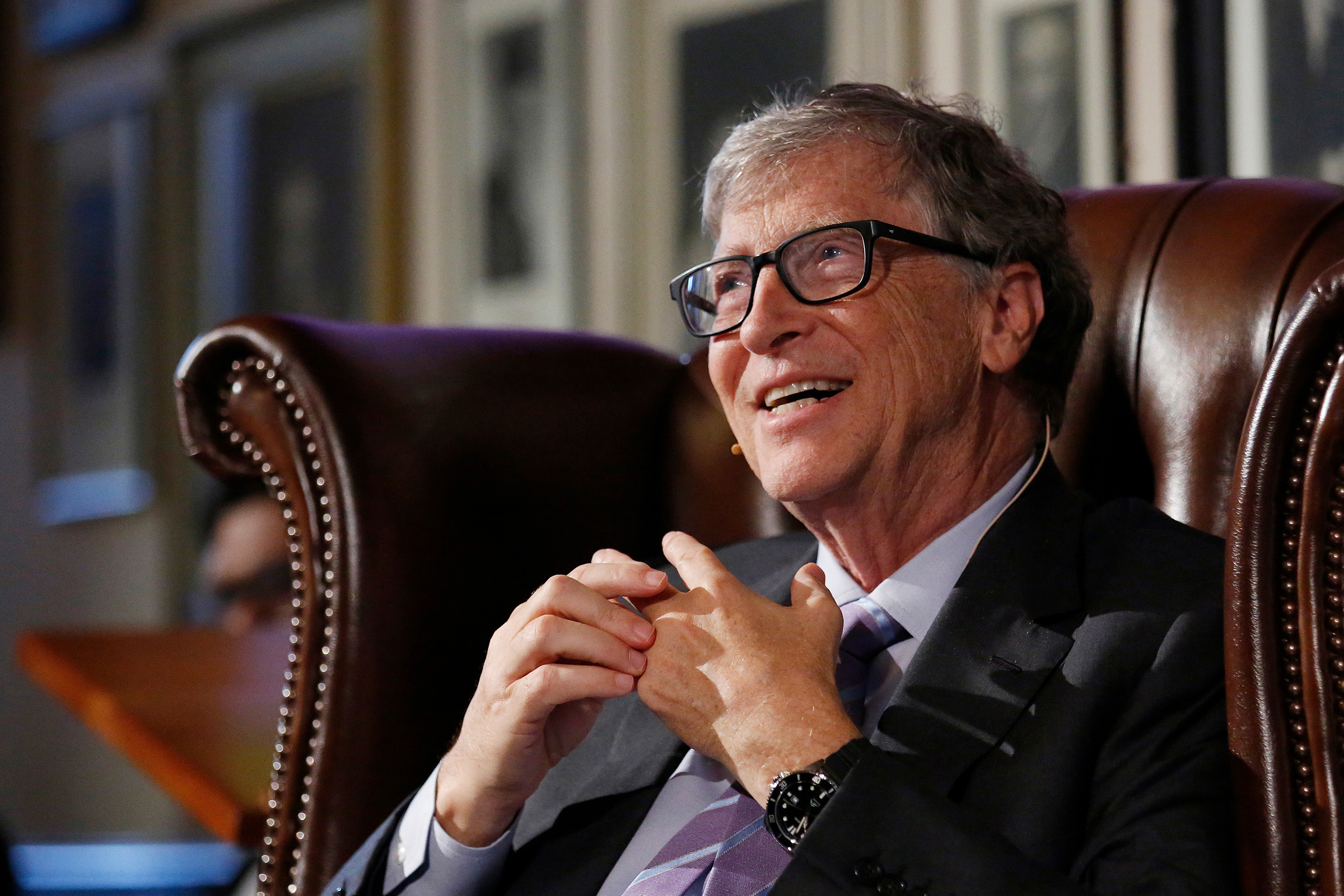
Bill Gates told an audience at the University of Cambridge on Monday that global malnutrition will be solved and malaria will be virtually eliminated by 2040 if world leaders choose to fund scientific innovation.
Speaking at the Cambridge Union in England, the Microsoft co-founder said: “I’m lucky that my work gives me a view of all the amazing discoveries in the works right now. That’s why I’m able to predict the future.”
Gates was named the 2019 recipient of the Professor Hawking Fellowship, founded by the Cambridge Union Society in 2017 in honor of Stephen Hawking’s contribution to the university.
Quoting a question Stephen Hawking asked in his final book, Brief Answers to the Big Questions, Gates asked the audience, “How do we shape the future?”
The billionaire philanthropist is trying to shape the future by tackling global health issues and inequality at the Bill and Melinda Gates Foundation. On Monday, he predicted scientists will solve malnutrition and significantly reduce the number of nutrition-related deaths globally in the next 20 years. “By solving malnutrition, we can fix one of the biggest contributors to inequity,” he said.
Malnutrition contributes to about half of deaths in children under the age of five, according to the World Health Organisation (WHO).
Gates points to how scientists have developed solutions in recent years, including fortified foods or supplements packed with vitamins and minerals, vaccines and medicines for infections, as well as improving maternal health.
But he said another key component to solving malnutrition is understanding the role bacteria plays. In a healthy body, “good bacteria” protects us from infection and is essential for digestion — if your body’s bacteria is not up to scratch, it can lead to severe cases of malnutrition, Gates added.
In the last few years, scientists have made breakthroughs in understanding how the gut becomes less effective due to abnormalities in microbiomes, or bacteria, and how to change it — including the development of probiotics. According to Gates, with more innovation and research, scientists will be able to solve malnutrition in 20 years by creating “next-generation probiotic pills that contain ideal combinations of bacteria — even ones that are tailored to your specific gut.”
“If we can figure nutrition out — and I believe we will within the next two decades — we’ll save millions of lives and improve even more,” he said.
Solving malnutrition and other diseases will mark a shift toward focusing on improving lives rather than just saving lives, according to Gates. “It seems like a subtle difference, but it has a huge impact on how you approach healthcare. Within two decades, I believe every country on earth will be able to focus not just on keeping you alive, but healthy as well.”
Gates also spoke about malaria, a key area of focus for the Foundation. Malaria kills 435,000 people around the world each year. He predicted that malaria will be virtually eliminated by 2040, but drugs won’t be enough to do this. “The key to stopping malaria is vector control — and for malaria, the vector is mosquitoes.”
For Gates, a potential solution lies in gene editing, which allows scientists to solely target mosquitoes carrying malaria. “Inserting a gene that prevents these bad mosquitoes from reproducing would buy us time to cure all the people in an area of malaria. Then we could let the mosquito population return without the parasite,” he said.
Gates said investing in health innovations is the key to improving global health, closing the gap between health inequities and reducing poverty worldwide.
“The world is at a critical moment for global health… Nations are deciding right now whether those investments are worth making.”
“The future is ours to shape — if we choose to make innovation a priority,” he continued. “Improvements in health are fundamental to lifting people out of poverty. When you improve health, people are more productive.”
“And when more children survive to adulthood, families decide to have fewer children, which can lead to a burst of economic growth.”
More Must-Reads from TIME
- Cybersecurity Experts Are Sounding the Alarm on DOGE
- Meet the 2025 Women of the Year
- The Harsh Truth About Disability Inclusion
- Why Do More Young Adults Have Cancer?
- Colman Domingo Leads With Radical Love
- How to Get Better at Doing Things Alone
- Michelle Zauner Stares Down the Darkness
Contact us at letters@time.com